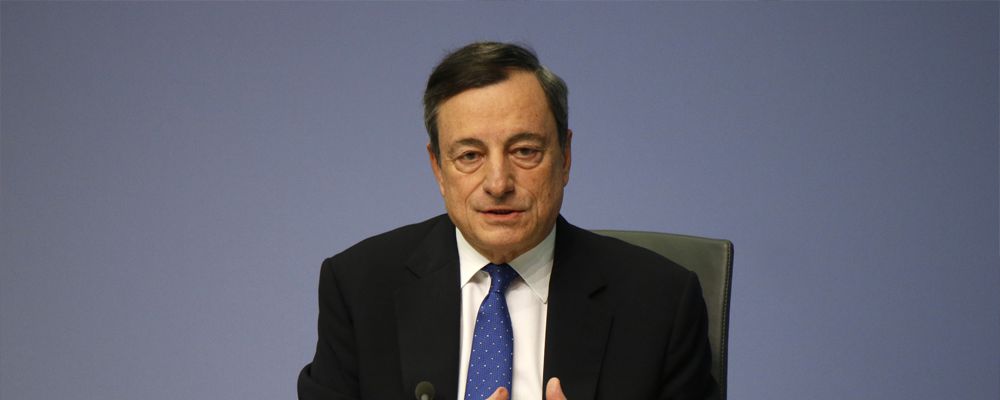Mario Draghi Must be Very Pleased With The Early Results of his QE Programme
- Sunday, April 16, 2017

Mario Draghi, the ECB President, must be very pleased with the early results of his QE programme. He has confirmed, irrespective of the initial impact, the ECB bond buying programme will be implemented in full. This will mean a €1.1tn capital injection into the Eurozone economy through to September 2016. Mr Draghi believes it will take time for the full benefits to spread to the wider economy and return inflation to its target of 2%.
Critics of QE have warned that the ECB‘s monetary policy lets national politicians off the hook on essential reform and that ultimately political inaction will raise pressure to maintain emergency low levels of interest for longer. While Mr Draghi accepts these points, he currently considers them the price to pay to help countries with huge debt burdens reduce their borrowing costs and start a recovery. He considers the implementation of the full QE programme as vital to boosting confidence, growing investment, and creating higher consumption and stable inflation.
German investors were buying up gold bars and coins as a hedge against the QE programme in Europe and the threat of a Greek default. Gold is seen as a safe haven to protect against inflation and economic crisis. While overall gold demand fell across the world, it significantly increased in Germany. Generally with the absence of strong inflationary pressure and a raising US$, gold is unlikely to record any significant price movement.
Financial market reaction to the developments in Greece has been relatively muted up until early June when markets started to become very nervous. With the absence of an agreement, the risk of bond rate rising as an upward adjustment of the risk premium and losses on equity markets could materialise. While it is generally believed that the European Banks can withstand a Greek default, it would be unwise to consider that the default could be contained without global loses and some peripheral contagion.
The ECB’s bigger concern in some respect is what happens to the world economy when the US Federal Reserve begins to raise interest rates. This will further raise US$ values and start changing the cost of long-term credit, consequently changing the forecasts for GDP growth and debt costs.

Chris Davies
Chartered Financial AdviserChris is a Chartered Independent Financial Adviser and leads the investment team.
About Estate Capital
Financial Services
Our Contacts
7 Uplands Crescent,
Swansea, South Wales,
SA2 0PA.
Tel: 01792 477763
